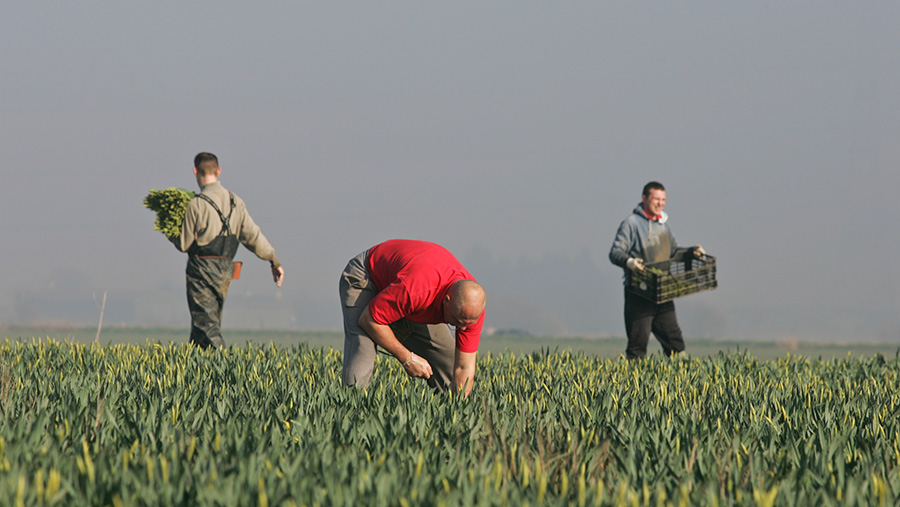Lobby MPs over national living wage, growers urged
 © Tim Scrivener
© Tim Scrivener Growers are being urged to lobby their MPs amid mounting concern profits will be wiped out following the introduction of the government’s national living wage for England this spring.
NFU horticulture vice-chairman Ali Capper met Defra minister George Eustice on Thursday (11 February) to call for more time to implement the changes – and urge the scrapping of employers’ national insurance contributions for seasonal workers.
It follows a report by consultants Andersons which found the national living wage – set to increase minimum pay from £6.70/hour to £7.20/hour for workers over 25 – threatens to wipe out horticultural profits when it is introduced on 1 April.
See also: 6 ways the living wage could devastate horticulture
Ms Capper said: “We need government recognition that the national living wage will have a huge impact on this sector, particularly for labour-intensive crops such as hand-picked fruit and vegetables where labour costs can be as high as 70% of turnover.
“We need help to mitigate some of the immediate impacts, or our businesses will fail.
“We are also urging the food supply chain and retailers to consider national living wage costs, so British farm businesses can continue to supply high-quality affordable food to British consumers.”
“We need government recognition that the national living wage will have a huge impact on this sector, particularly for labour-intensive crops such as hand-picked fruit and vegetables where labour costs can be as high as 70% of turnover”
Ali Capper, NFU
Ms Capper added: “Our growers must have certainty that a margin over costs can be achieved.
“Research and innovation that reduces wage bills and increases productivity must be a priority for our sector.”
The NFU was fully supportive of a living wage for all workers in the agricultural industry.
But horticultural businesses would be made uncompetitive and unprofitable within three to four years of its introduction, said Ms Capper.
The Andersons report says the introduction of a living wage posed a “significant threat” to many growers – especially those with an unusually high requirement for labour, which is typically in the range of 35% to 60% of business turnover.
